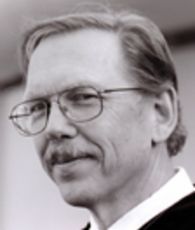GTU Staff, Students, and Faculty
Distinguished Faculty Lecturer | Dr. Richard K. Payne (PhD, 1986)
Dr. Richard K. Payne is the GTU’s award recipient for the 47th Annual Distinguished Faculty Lecture. Dr. Payne is Yehan Numata Professor of Japanese Buddhist Studies, Chair of IBS Publications Committee, and he is the Buddhism and Contemporary Psychology Certificate Program Director at the Institute of Buddhist Studies (IBS). He is also a Core Doctoral Faculty member, and he has been at the GTU since 1995. Dr. Payne completed his PhD in History and Phenomenology of Religion at the GTU (1986), after earning his MA from San Jose State University. During his dissertation research into tantric fire ritual (Skt. homa, Jpn. goma) on Mt. Kōya in Japan, Payne also completed training as a Shingon priest (ajari). His research and teaching interests include the history and rituals of Tantric Buddhism, secular Buddhism, Ritual Studies, and the Mahāyānasaṃgraha. He is editor of the Oxford Bibliographies/Buddhism, and co-editor with Georgios Halkias of the Oxford Research Encyclopedia/Religion/Buddhism.
GTU: Congratulations on being named the GTU’s 47th Distinguished Faculty Lecturer! What does this honor mean to you?
Dr. Richard Payne: Most importantly, it gives me a chance to express my appreciation to and for my colleagues, to make explicit my gratitude for years of collegiality.
Beyond that, it is feeling like, “Gosh, somebody noticed!” Life as a scholar often tends to be isolated and isolating. It’s such a pleasant surprise to know not only that people have noticed my work, but that it has been appreciated. Most of the time we get so little feedback, and it’s gratifying.
GTU: What recent work are you especially proud of? With whom are you hoping this work will connect? What difference do you hope this work will make?
RP: “Ritual Syntax Revisited,” an essay published in Numen (May 2022). This work is intended to reach people working in ritual studies, specifically those who are attempting to develop comparative studies, such as those involving change over time, across cultural boundaries, or in interaction with other ritual cultures. I have picked out this one essay because it encapsulates a lot of theoretical work I’ve focused on since starting doctoral studies at the GTU. 35 years later, I have finally got an essay published that said what I wanted to say about theory and application.
The essay focuses on the applicability of an analytic tool for the study of ritual—ritual syntax; originally proposed by Frits Staal in the mid-1970s [Johan Frederik "Frits" Staal, 1930–2012, was the department founder and Emeritus Professor of Philosophy and South/Southeast Asian Studies at the University of California, Berkeley]. The potential benefit of the idea of ritual syntax as a tool for the study of ritual has been long obscured. I hope to make ritual syntax more widely available by both addressing some of the main critiques and by showing its utility.
GTU: What are the key concerns and themes of your work today? Have those concerns and themes changed since your time as a doctoral student at the GTU? If so, how?
RP: I am still focused on the study of tantric Buddhist ritual, particularly in Japanese Buddhism. This was my dissertation topic, so despite various digressions and tangents, that has remained central.
Other areas that I’ve worked in, however, are language and discourse in medieval Japanese Buddhism, the economics of Buddhism, and the secularization and globalization of Buddhism. These are all important, and they have been of value for my own intellectual development, but the core concerns have remained the same.
GTU: What has ritual meant to you, personally?
RP: I grew up in a context that was suspicious of ritual. Ritual was understood as a meaningless activity, something done by rote. In my late teen years and into my college years, I became interested in Buddhism, realizing actual Buddhism is highly ritualized, and not the same as the mid-twentieth century image of Buddhism. There is a discrepancy from that image, which struck me as something I needed to understand.
I became involved in Tibetan Buddhism, and I attended a dramatic ritual service in a Japanese Buddhist temple, all of which led to my committment to studying ritual. I met Frits Staal at UC Berkeley, before beginning my PhD studies. He gave me a copy of “The Meaninglessness of Ritual” [Frits Staal, Numen, Vol. 26, Fasc. 1 (June, 1979), pp. 2-22], which shifted my focus in studying ritual. I realized I wanted to study the Japanese Buddhist fire ritual (homa, in Sanskrit, or goma, in Japanese). So, it was the disjunction between the image of Buddhism, as an almost austere form of meditation only, and the reality of the ritualized nature of Buddhism, that got me interested in studying ritual.
GTU: What initially led you to the GTU for your PhD studies?
RP: The History and Phenomenology of Religions program offered a way to study Buddhism as a philosophical and psychological tradition, rather than emphasizing language study and philology the way that most programs in Buddhist studies per se did.
GTU: With whom did you connect at the GTU who made an impact on you and/or your work?
RP: The life of a doctoral student can be both isolated and isolating. Going home for Thanksgiving can be awkward. Being asked questions like, “Who is Nagārjuna?” Or, “When are you going to get a real job?” So in many ways the small group of other graduate students who were in the program at the same time may have been the most important because of the support provided just by sharing seminars, interests, and ideas. The ones most important for me personally were Bill Cassidy, Margo Kitts, and Ann Berliner.
GTU: What are you especially proud of from your time at the GTU?
RP: Establishing the Buddhist Chaplaincy program at the Institute of Buddhist Studies (IBS). In the 1990s, there were two tracks [at IBS]: academic and ministerial. In the ministerial track at the time, there was not a lot of focus given to pastoral care, chaplaincy, or counseling. Some of the students at the time wanted more psychology; what they meant was pastoral counseling.
I remember standing in the old GTU Bookstore in the late 1990s, looking at two bookcases filled with texts on pastoral counseling. I was looking to educate myself, but there was nothing available on Buddhist pastoral counseling! That birthed in me a drive to fill that gap.
Chaplaincy is a way for Buddhist practitioners to live a life of service and also make a living without going into an existing ministry or establishing one’s own center. The Association of Professional Chaplains began working with Buddhists to create a model for professional certification. Working with that as a basis, we began to develop a program at IBS. Rev. Dr. Daijaku Kinst was hired to take over the program. Putting her in place to run and develop the program went well beyond my meager attempts to get it started. I take credit for understanding our need to hire her.
This program gives Buddhist practitioners a way to have a career, in relation to hospitals or other institutions, including opportunities as a military chaplain. This program has made a meaningful contribution to IBS, the GTU, and to the wider Buddhist community in the United States.
GTU: Can you tell us more about your upcoming Distinguished Faculty Lecture?
RP: I’m employing the idea of nondualism to examine the relation between doctrine and practice. That relationship is not how it’s typically treated in Religious Studies scholarship, where the two are usually considered as separate. Instead, the two are closely interrelated, and as for ritual, so, too, for religions.
GTU: What word would you use to describe the GTU?
RP: Creativity. Specifically, the creativity that an inter-religious institution is capable of stimulating. It is a context that fosters creativity.
GTU: As the GTU celebrates its 60th anniversary, we are inviting GTU community members to begin imagining what a brighter future 60 years from now might look like. What does that future look like to you? How would you like the GTU to be contributing to that brighter future?
RP: In the short run, active resistance to Christian nationalism and White supremacy seems essential for the health of our nation. Longer term, environmental concerns—which are of course also immediate—seem to threaten not just our country, but the sustainability of human life on the planet.
# # #
Dr. Richard Payne will present the 47th Annual Distinguished Faculty Lecture, titled, “From Ritual to Religion: The Consequences of Taking Nondualism Seriously,” on November 15, 2022, at 6:00 pm (PT).
Register for this event here.


